Regression analysis
Is regressive autism real? That is, do some children with autism develop normally for the first couple of years of their life, and then suddenly lose their ability to speak and socialize?
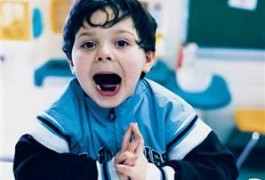
Is regressive autism real? That is, do some children with autism develop normally for the first couple of years of their life, and then suddenly lose their ability to speak and socialize?
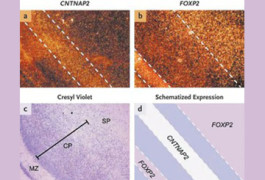
Variants in contactin-associated protein-like 2 or CNTNAP2 ― a gene thought to be involved in nerve cell communication ― are associated with language deficits in families affected by specific language impairment (SLI), a developmental disorder that affects roughly seven percent of kindergarten-age children, according to a study published in late November.
Children with autism process sounds a split second slower than typically developing children, according to a new study that measured the magnetic fields emitted from the children’s brains.
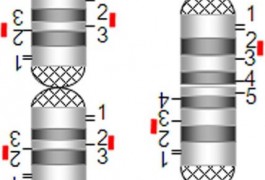
The first postmortem study to examine the effects of chromosome 15 duplication on gene expression shows completely divergent results, suggesting that the effect of genetic duplications is far from predictable, according to a study published last month in the Journal of Medical Genetics.
Some small fragments of RNA are expressed differently in people with autism than in controls, according to two new studies. The findings unveil another layer of complexity in the genetics of autism.
A child’s language ability correlates with the volume of his or her amygdala ― the small, deep brain region that is strongly associated with emotion processing ― according to an unpublished five-year longitudinal study presented Wednesday afternoon at the Society for Neuroscience meeting.
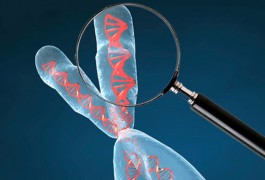
The latest of many full genome scans of large groups of people with and without autism has identified two new chromosomal regions associated with the disorder. The findings were unveiled last week at the American Society of Human Genetics meeting in Philadelphia.
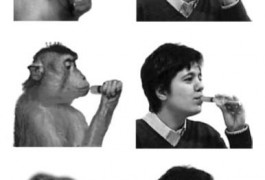
High-functioning children with autism may understand another personʼs intention when, for example, that person reaches for a glass of water ― a simple, goal-directed task ― without help from the mirror neuron system, according to research reported Tuesday at the Society for Neuroscience meeting.
Researchers are narrowing in on a pool of genes that may be involved in helping neurons find their targets, according to unpublished work presented today in a poster session at the Society for Neuroscience meeting.
A new slow-release form of the drug risperidone ― an antipsychotic given to people with schizophrenia, autism and other psychiatric conditions ― lasts in the blood days instead of hours, according to research presented today at the Society for Neuroscience meeting.